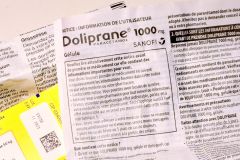On March 5, EU member states agreed on targets for reducing packaging waste volumes: 5% by 2030 (compared with 2018), 10% by 2035 and 15% by 2040. These announced targets are accompanied by an obligation for EU countries to make packaging recyclable by 2030 and to systematically recycle it, whatever the material, by 2035. And many bans are being introduced...
Plastics in the EU's crosshairs from 1 January er january 2030
Exit on 1 er as of January 2030, single-use plastic containers will be banned from cafés and restaurants, along with sauces and sugar pods.
Hotels will no longer be happy with their miniature bottles of shampoo, cream and soap.
Plastic film is also banned for unprocessed fruit and vegetables.
Suitcases can no longer be packed in plastic bags at airports, and cardboard boxes filled with polystyrene chips.
Plastic bags of less than fifteen microns will be banned, unless used as primary packaging for bulk or for hygiene reasons.
Cardboard and paper find favor with the EU, but...
The fears of paper manufacturers and fast-food chains have been allayed with regard to the use of paper and cardboard containers for takeaway sales, which remain authorized.
However, from 2027, traditional and fast-food outlets will be obliged to serve their customers in the reusable containers they bring with them.
Per- and polyfluoroalkylated chemicals, better known as PFAS, still widely used in pizza boxes, for example, will be banned from 2026.
Deposit return on the agenda and recycling in focus
A deposit system for plastic bottles and cans will have to be set up by 2029, except in countries reaching a collection rate of 80% by 2026.
To meet the 2035 recycling target, 90% of packaging materials will have to be collected separately by 2029.
As with any provisional agreement, the new measures can only come into force once they have been validated by the member states and the European Parliament in plenary session.














